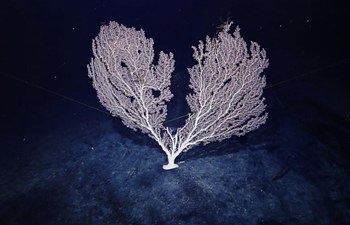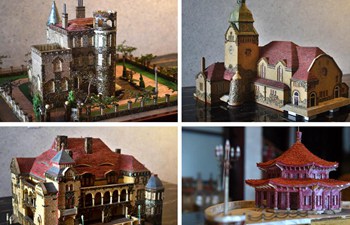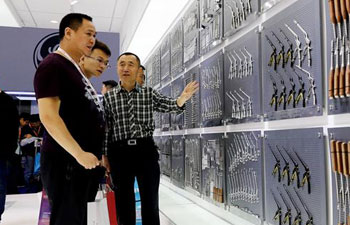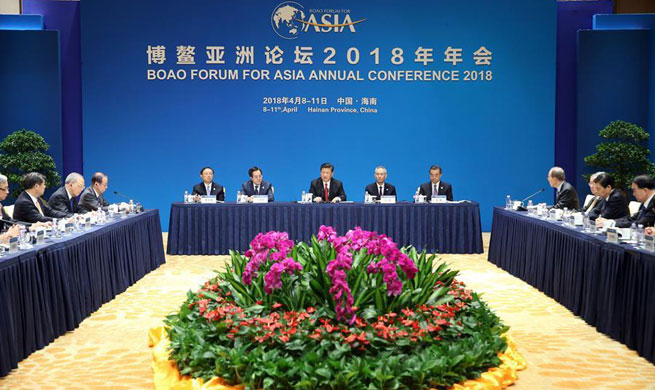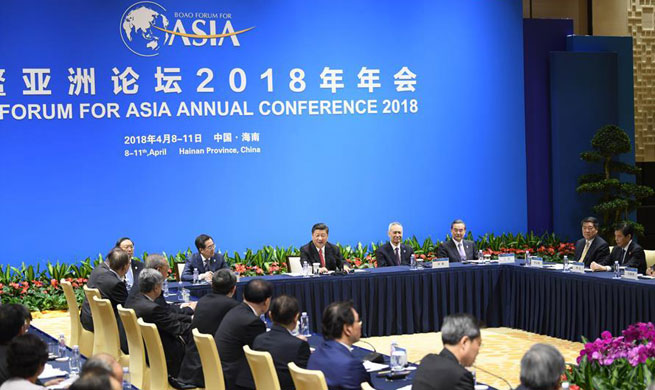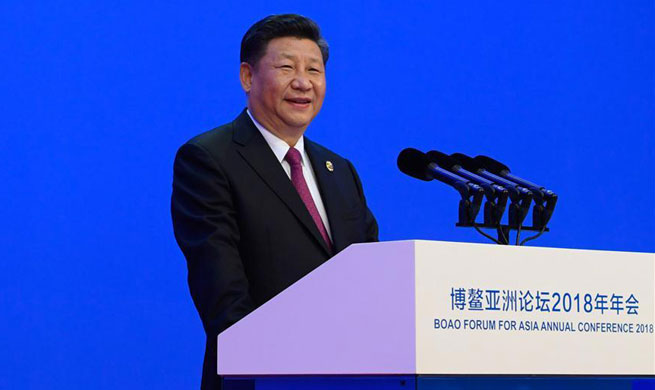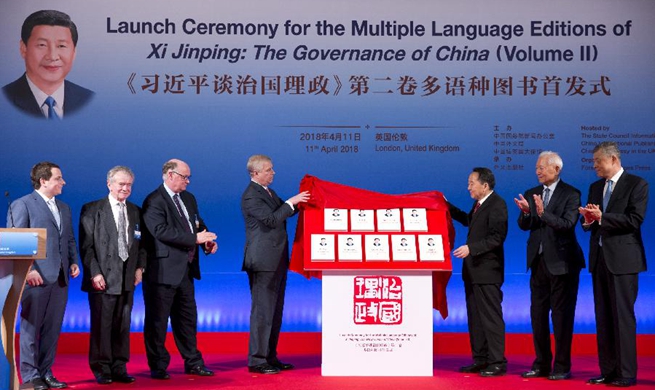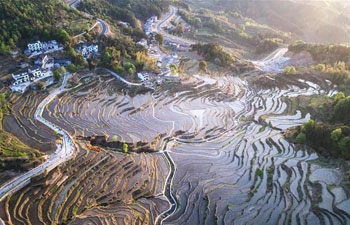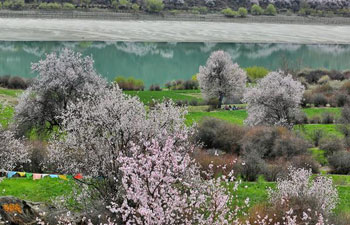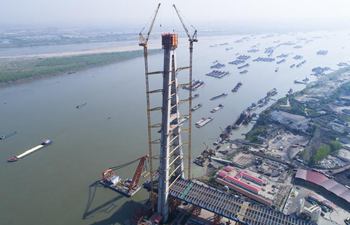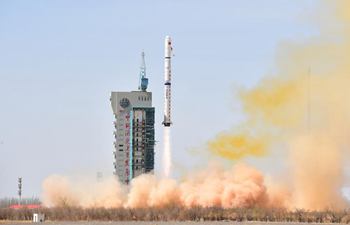CAIRO, April 12 (Xinhua) -- Egypt expressed its rejection of being blamed by Ethiopia and Sudan over the failure of their recent tripartite talks regarding the Grand Ethiopian Renaissance Dam (GERD) under construction, the Egyptian Foreign Ministry said in a statement on Thursday.
The Egyptian statement came in response to recent statements from the Ethiopian and Sudanese foreign ministries holding Egypt responsible for the failure of their talks in Khartoum earlier in April.
"Egypt took part in the nine-party meeting in Khartoum with a positive spirit and an earnest desire to reach an agreement that implements the instructions of the leaderships of the three states," Egyptian Foreign Ministry's spokesman Ahmed Abu Zeid said in the statement.
The meeting is referred to as "nine-party" for comprising the ministers of foreign affairs, those of water resources and the heads of intelligence services of the three countries.
He explained that Egypt participated in Khartoum talks with the purpose of reaching solutions that would overcome the current stalemate of the technical talks regarding the GERD.
Abu Zeid revealed that Egyptian Foreign Minister Sameh Shoukry sent on Wednesday letters to his Ethiopian and Sudanese counterparts inviting them for another meeting in Cairo to continue their discussions.
While Ethiopia and Sudan eye massive benefits from the GERD construction, Egypt is concerned it might affect its 55.5-billion-cubic-meter annual share of the Nile River water.
In January, the presidents of Ethiopia, Egypt and Sudan met in Ethiopia's capital Addis Ababa on the sidelines of the 30th African Union summit and agreed to avoid misunderstandings by joint cooperation on common interests.
The meetings of a tripartite technical committee on the GERD have been fruitless over the past sessions.
Egypt's ties with Ethiopia have seen ups and downs since the latter started the dam project in April 2011 while Egypt was suffering turmoil following an uprising that toppled veteran President Hosni Mubarak.
When Egyptian President Abdel-Fattah al-Sisi took office in 2014, he showed understanding of Ethiopia's aspiration for development through the GERD that would produce around 6,000 megawatts of electricity to the country.
In March 2015, the leaders of upstream Nile Basin country Ethiopia and the two downstream partners Egypt and Sudan signed an initial cooperation deal on the principles of sharing the Nile River water and the construction of the GERD, which will be Africa's largest dam upon completion.
On the other hand, Sisi and his Sudanese counterpart Omar al-Bashir met in Cairo in mid-March and agreed to end all differences between the two African countries over a number of thorny issues.
In addition to the GERD issue, Egypt and Sudan have a territorial dispute over the border region of Halayeb and Shalateen, which is currently under Egyptian control.
In May 2017, Bashir also accused Egypt of providing military support to armed rebels in his country, which was strongly denied by Sisi.
In early January, Khartoum recalled its ambassador to Egypt for consultation over "potential security threats" from Egypt and Eritrea following reported military moves in Eritrea's Sawa area near the border with Sudan's state of Kassala.
The Sudanese ambassador later returned to Cairo.




